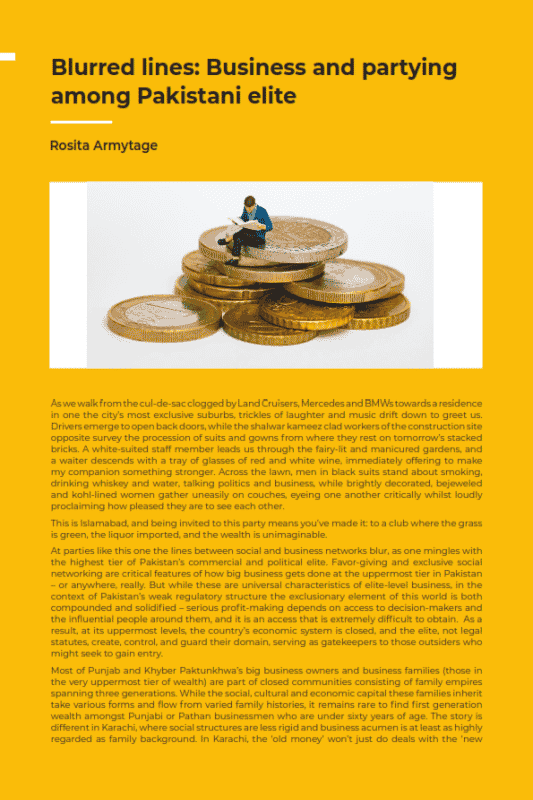Blurred lines: Business and partying among Pakistani elite
As we walk from the cul-de-sac clogged by Land Cruisers, Mercedes and BMWs towards a residence in one the city’s most exclusive suburbs, trickles of laughter and music drift down to greet us. Drivers emerge to open back doors, while the shalwar kameez clad workers of the construction site opposite survey the procession of suits and gowns from where they rest on tomorrow’s stacked bricks. A white-suited staff member leads us through the fairy-lit and manicured gardens, and a waiter descends with a tray of glasses of red and white wine, immediately offering to make my companion something stronger. Across the lawn, men in black suits stand about smoking, drinking whiskey and water, talking politics and business, while brightly decorated, bejeweled and kohl-lined women gather uneasily on couches, eyeing one another critically whilst loudly proclaiming how pleased they are to see each other. This is Islamabad, and being invited to this party means you’ve made it: to a club where the grass is green, the liquor imported, and the wealth is unimaginable. At parties like this one the lines between social and business networks blur, as one mingles with the highest tier of Pakistan’s commercial and political elite. Favor-giving and exclusive social networking are critical features of how big business gets done at the uppermost tier in Pakistan – or anywhere, really. But while these are universal characteristics of elite-level business, in the context of Pakistan’s weak regulatory structure the exclusionary element of this world is both compounded and solidified – serious profit-making depends on access to decision-makers and the influential people around them, and it is an access that is extremely difficult to obtain. As a result, at its uppermost levels, the country’s economic system is closed, and the elite, not legal statutes, create, control, and guard their domain, serving as gatekeepers to those outsiders who might seek to gain entry.




